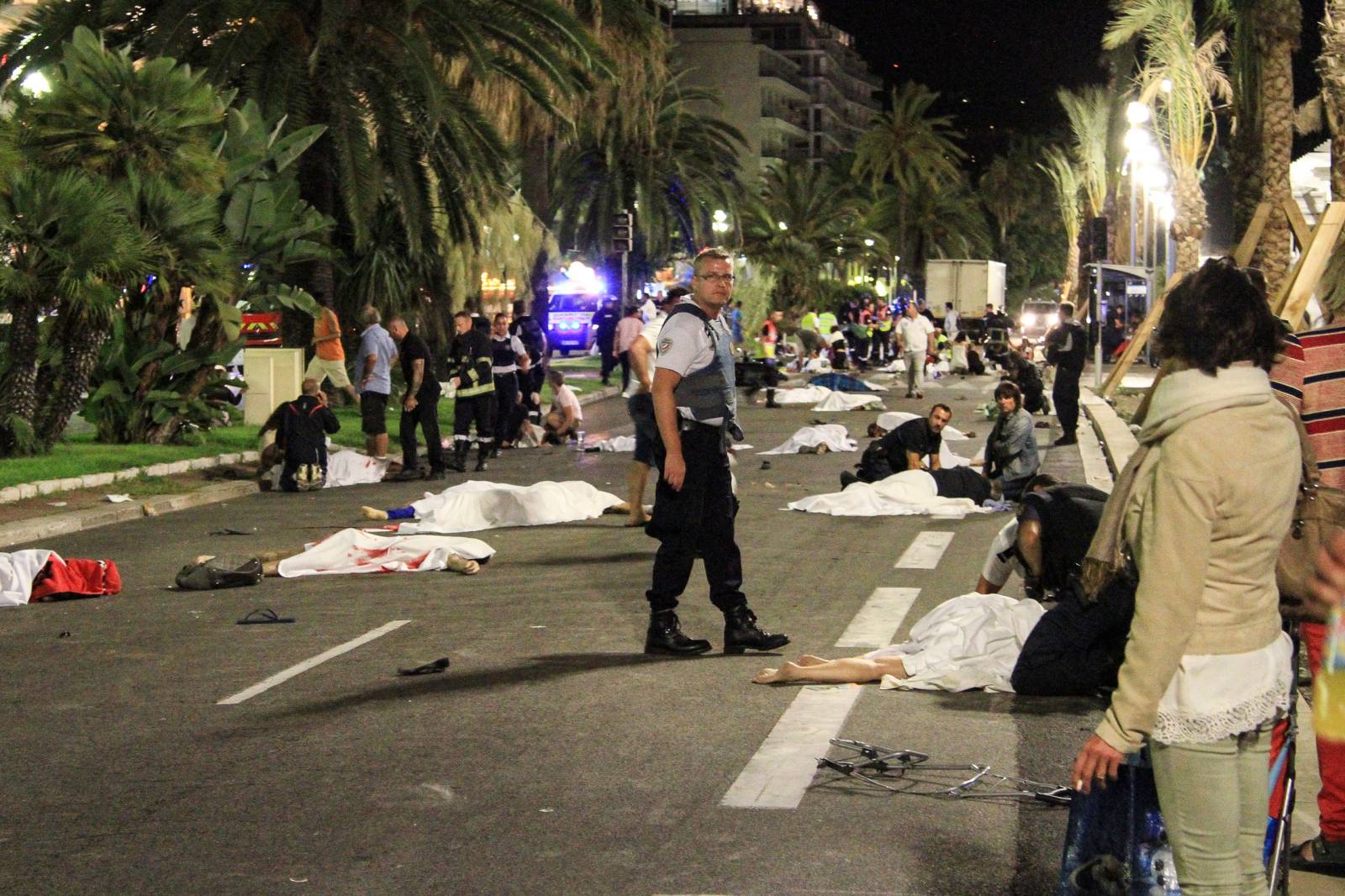Understanding and Combating the Jihadist Threat

A so-called radicalized French ex-prisoner on a watch list of potential terrorist threats stabbed a policewoman inside her station in western France last Friday before being killed in a shoot-out with police, a government minister said.
In Hamburg, Germany, also on Friday, a man repeatedly walked onto the road with a knife, threatening motorists. He damaged vehicles with his gun, and shouted “Allahu Akbar” (Allah is the greatest) several times. Then he attacked the police officers who had been called to the scene.
What the media reports of these tragic incidents failed to disclose is how the assailants were inspired by sharia law, which fundamentally enforces Quranic verses, such as:
Indeed, the penalty for those who wage war against Allah and His Messenger and strive upon earth [to cause] corruption is none but that they be killed or crucified or that their hands and feet be cut off from opposite sides or that they be exiled from the land. That is for them a disgrace in this world; and for them in the Hereafter is a great punishment; Except for those who repent before you apprehend them. And know that Allah is Forgiving and Merciful. —Sura 5, 33–34

This is in part because of ‘political correctness,’ the contemporary socio-political doctrine of sharia—the Islamic law in which Muslims find both constancy and unity—has successfully inserted itself into the West as a legitimate juridical structure. Despite the fact that sharia encourages jihad and simultaneously discourages any proper development of human rights—such as freedom of speech and of religion—or that it fails to recognize the equality between man and woman, Western officials remain reluctant to criticize it. They refuse to publicly admit that it not only justifies the illegitimate use of force but requires that all human beings subjugate themselves to it. This is something that is even stipulated in Article 24 of the Cairo Declaration of Human Rights in Islam: “All the rights and freedoms stipulated in this Declaration are subject to the Islamic Sharia.”
Much of the Islamist jihad in the West has already curbed freedom of speech in countries like the France and the United Kingdom. In the United States, groups like the Council on American-Islamic Relations have even gotten government officials to capitulate to similar restrictions. While he was in Congress, former Secretary of State Mike Pompeo once told a church crowd that the “threat to America” (and civilized society) was caused by “people who deeply believe that Islam is the way.”
It must be publicly acknowledged that the goals of sharia-driven jihadists, such as the Muslim Brotherhood, al-Qaeda, the Taliban, or any Muslim who wakes up one day to start killing non-Muslims for the sake of Allah are clear: restoring the Islamic Calphate and ultimately Islamizing the U.S., Europe, and the world.
Such religious proliferation is not true freedom of speech or religion but a violation of it. A so-called religious institution should forfeit its right to exercise its faith if it actively promotes hatred, violence, and insurrection. Stoppage of this is not achieved by interreligious dialogue, which tends to become a politically correct monologue, but by action. As with the suppression of the Barbary Pirates by President Thomas Jefferson in 1805, who took action in order to rescue Americans who had been captured and enslaved by the Barbary pirates in Libya, sometimes action is required. And sometimes action necessitates the use of force, even if it is preemptive, in order to defend the innocent and protect society from extremist movements.

Austria, which underwent a deadly Islamic terrorist attack last November, is properly responding to the Islamic dilemma by launching a “terrorism offenders registry” for ‘Islamist’ and ‘right-wing’ terrorists. In 2015, Austria passed reforms to a little-known bill, the 1912 Islam law, which was partly “aimed at tackling Islamist radicalism.” It banned foreign funding for mosques and imams, and was “widely held up as a model for Europe in dealing with Islam.”
In the end, however, true action is remedied by a united Western front under our Judeo-Christian roots that would require us to make judgments about what the rule of law is and what it commands. Perhaps then, notwithstanding the existing irreconcilable differences with Muslims, reaching a common ground with Muslims on some specific issues is possible—even if we must recognize that we may arrive at some juncture someday where, after walking a part of the road together, the two paths must separate once more.
__________________________________________________

Mario Alexis Portella is a priest of the Cathedral of Santa Maria del Fiore and Chancellor of the Archdiocese of Florence, Italy. He has a doctorate in canon law and civil law from the Pontifical Lateran University in Rome; he also holds a M. A. in Medieval History from Fordham University, as well as a B.A. in Government & Politics from St. John’s University. He is also author of Islam: Religion of Peace? – The Violation of Natural Rights and Western Cover-Up.

Book available on Amazon, Barnes & Noble or WestBow Press.





Recent Comments